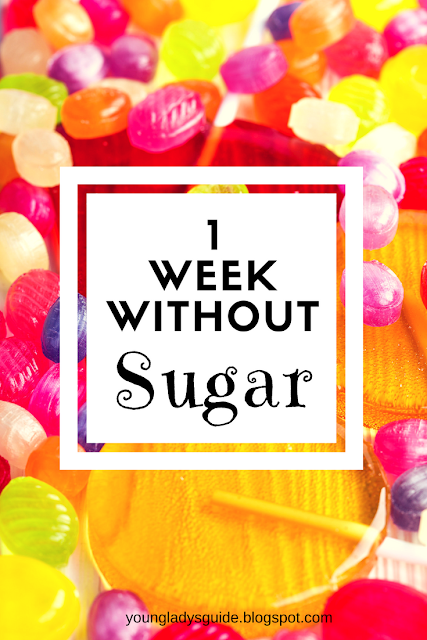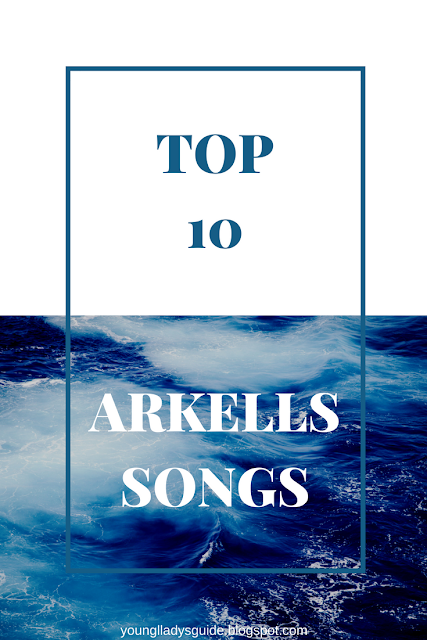1 Week Without Sugar
I must confess, I have a huge sweet tooth. Chocolate, fruit juice, ice cream; you name it, I want it. So when I decided to cut out sugar from my diet for a full week, I knew it wasn't going to be easy but, I had heard about the so called 'evils' of sugar in the past and was curious to see how I would hold up.
"Sugar by any other name would taste as sweet" - Shakespeare (probably)
Now when I say that I cut out sugar, I don't mean just white sugar. I mean any and everything that contained any type of added sweetener. Before starting the week I did a little research and found that there are SO many different forms that sugar can come in, from both natural and artificial sources. On top of that, there are all sorts of funny names for sugar; from maltodextrin to diatase. I have compiled a list of 56 different sugars below to look for in your foods.

Sugar where?!?!
Now you may associate sugar with sweet things; soda, desserts, candy, etc. But, throughout the week I spent a fair amount of time scanning the ingredient labels of the foods in my cupboards and at the grocery store and I discovered something quite shocking. From tomato sauce to crackers, bread to hamburger condiments, granola bars to yogurt, sugar seemed to be in everything! At one point I inspected some BBQ sauce and found that the bottle's FIRST ingredient was sugar. Other products gave me false hope; I'd make it two thirds down the list before coming across a sneaky name for sugar like 'diastatic malt.' In fact it is estimated that 80% of manufactured foods on the market have added sugar.
What could I eat?
Although the discovery of all these 'hidden' sugars took a hit to my confidence in being able to pull off this self assigned challenge, I was still determined to find foods that would fit within my parameters. It didn't take long for me to realize that, in general, processed foods were a no-go, while fresh produce and "real" ingredients consistently made the cut. This forced me to cook and eat well balanced meals packed with vegetables.
I took pleasure in sweet fruits such as berries, nectarines, and medjool dates; these were my guilt-free candies for the week. I enjoyed creating my meals and knowing all the ingredients that I was eating. And, I made some wonderful discoveries such as Tutti Gourmet's Fruit Bites (pictured below). These were a godsend to my sugar craving body, they were sweet and filling without all the other junk! But, there's a catch; they were on the pricey side. However, it is products like this that give me hope; hope that the processed ready-made food market hadn't completely turned its back on health.
Eating out? Almost impossible. Most restaurants are not accustomed to listing out ALL their ingredients on their menus. So, except for one meal, in which I was 95% sure there was no sugar, I avoided eating out.  |
| Tutti gourmet fruit bites. Ingredients: banana puree, organic coconut, organic sesame seeds, raspberry, orange and lemon rind. And that's it! |
No sugar coating this one
Early on in my week I began to question why I was doing this, so I decided to do so research. And i certainly got my answer. I watched a couple documentaries on Netflix about modern food production and its relation to health. My favourite of these documentaries was “Fed Up” because of its focus on sugar’s detrimental role in our diets. I'm no dietician but I can tell you with absolute certainty that too much sugar is bad for your health.
Check out the full "Fed Up" documentary on Netflix.
In the second half of the 20th century it was decided that fat was “bad.” So food manufacturers took the fat out of their foods... and began pouring in the sugar. Why? Because food without fat tastes bad. Added sugar makes the food more palatable and at the end of the day, it is good tasting food that sells.
So what? To answer this question you need a little science. Basically, when sugar is added to products they lack the natural fibre that exists in natural sweet foods like fruits. Fibre would help offset any bad effects but instead, these manufactured foods send the liver into overdrive. When the liver “can’t even” the pancreas begins producing loads of insulin. This is bad for two reasons. First, insulin turns all the sugar you just ate into fat. Second, high levels of insulin block your body’s natural “I’m full” signals, causing you to feel more hungry than you actually are. Queue problems with overeating.
The result? Sugar can be classed as a “chronic dose dependant hepido toxin.” Type 2 diabetes, cancer, heart disease, lipid problems, and strokes are all arguably driven by excessive sugar consumption.
What about artificial sweeteners? Are they okay?
The answer is NO! Artificial sweeteners are actually worse for you than sugar. Sweeteners such as aspartame, Splenda and Sweet N' Low are chemically manufactured and do not resemble real food. Aspartame for example, can cause formaldehyde build up in the brain, frontal lobe inflammation, migraines, cancers, multiple sclerosis, seizures, cognitive problems, visual disturbances, and ...weight gain. All things that you DO NOT want. Put down that 'diet' soda, your body will thank you. In fact, you should be weary of any 'calorie free,' 'sugar free,' and 'fat free' products in general.
Addicted
To top this all off, sugar is addictive. 8 times as addictive as cocaine! A study took cocaine addicted rats and introduced them to sugar water. By the end of the experiment, when given the choice between cocaine and sugar water, 40 out of 43 of the rats choose the sugar water. Sugar has all three parts of any addictive substance; binging, craving, and withdrawal. And it’s not easy avoiding temptations! From checkout lane candy stocks to soda pop billboards, there’s no escaping sugar’s grasp. And it’s simply criminal how food companies market products ridden with sugar to children!
Withdrawal
It is not uncommon to experience negative side effects when coming off a drug. This is true of sugar too. This week I experienced intense cravings, grumpiness, cramps, headaches, and more as my body adjusted to living without the sweet stuff.
So should we all swear off sugar?
While that would probably be ideal for our bodies, there is a safe threshold. The average person eats and drinks around 41 teaspoons per day. Yet, Food guides recommend only 6-9 teaspoons per day! Healthy sugars such as honey, stevia, and coconut sugar are better options and agave can be a good option for diabetes patients. Yet, you should try to keep these to the recommended 6-9 teaspoons per day.Give me some sugar
By the end of the week I concluded that it is simply not sustainable for me to try to completely avoid sugar as a university student with limited time, and with buying groceries on a budget. Also, sometimes you need a little sweetness in your life; for your sanity's sake. I'm going to go back to having some sugars in my diet. But, this time I'm going to try to stick to 'healthy' sugars when possible (honey, stevia, coconut sugar) and limit my intake to as close to 9 tsp as possible. Going forward I will definitely be more conscious of my sugar intake. I've always known that too much sugar isn't good for me but, I'm glad to now know more about why it's not good me and that I can indeed survive without so much.
🎶
Sugar,
oh honey, honey,
you are my candy girl,
and you got me wanting you!
🎶
Stay classy, never trashy, and just a little sassy!
- Kel
References
http://journals.plos.org/plosone/article?id=10.1371/journal.pone.0000698



Comments
Post a Comment